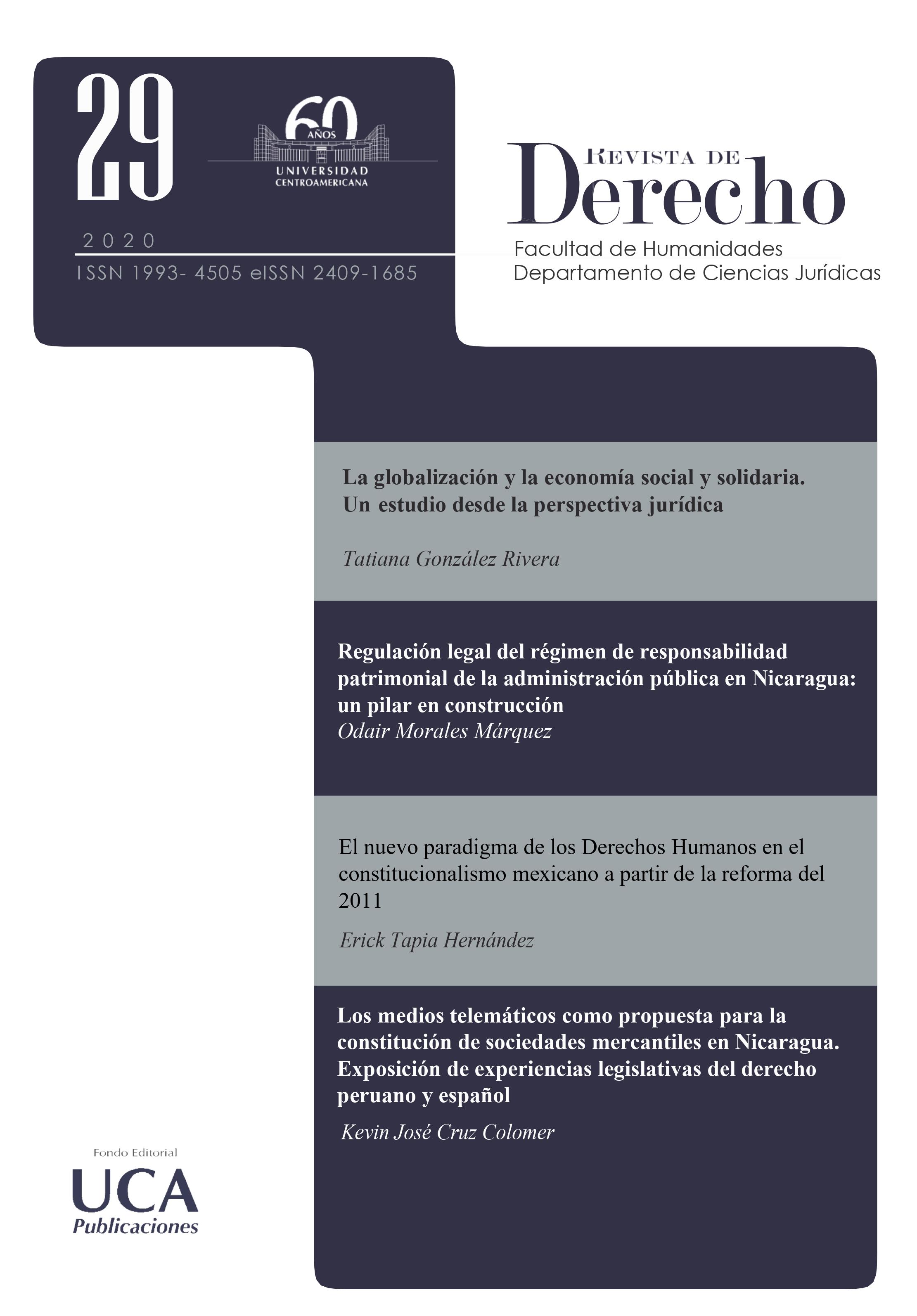The new paradigm regarding Human Rights in Mexican constitutionalism as of the 2011 reform
DOI:
https://doi.org/10.5377/derecho.v0i29.10620Keywords:
Human Rights, Neoconstitutionalism, 2011 Constitutional Reform, Law teachingAbstract
This paper focuses on the significance that the 2011 reform had in Mexican constitutionalism, as well as its repercussion on the topic of human rights. The thesis suggests an interdisciplinary analysis of the implications the reform had in our legal system, embodied by normative hierarchy, the ramifications of the term “human rights”—as well as the study of its limits on both the national and international order—, and the transition between theory and practice. The aforementioned elements will enable us to solidify the need of implementing a new justice prototype, which prompts a change in the paradigm of the way we understand, analyze, discuss and apply the law. Furthermore, this paper aims to stress the importance of the tools provided by subjects such as juridical argumentation, logic, methodology, and interpretation within the framework of this new paradigm.

